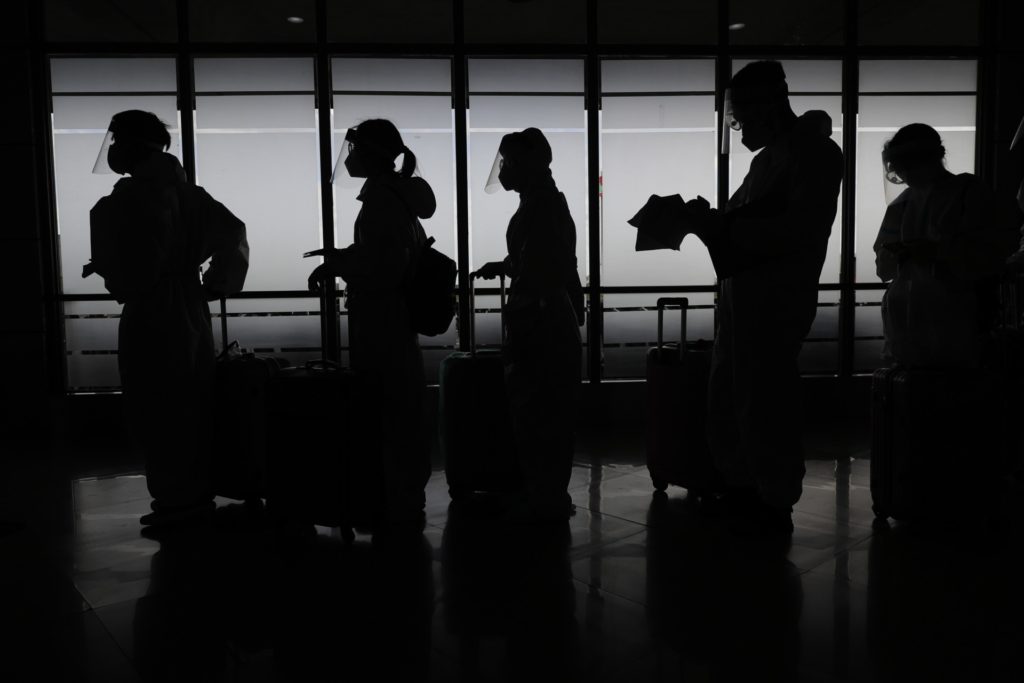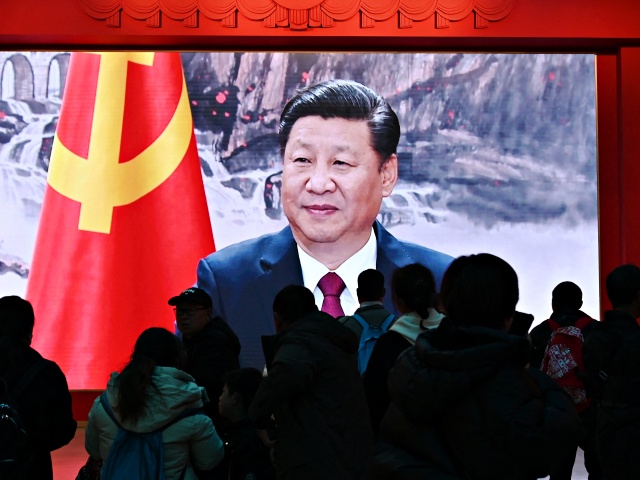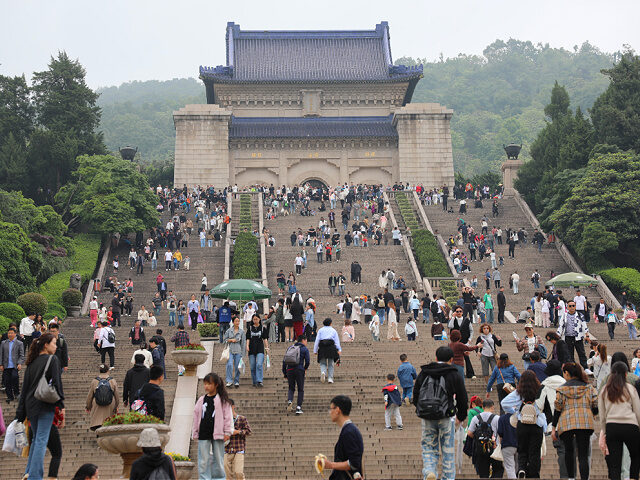The Chinese government celebrated heavy travel and tourism during China’s Labor Day holiday season, which ran from May 1 to May 5, as a sign the struggling economy is beginning to recover.
Foreign tourism lagged far behind domestic travel, suggesting China has a long way to go before it fully recovers from the Wuhan coronavirus pandemic and its lockdowns.
With the usual caveat that data from the authoritarian Chinese Communist regime cannot be implicitly trusted, the BBC found the Transport Ministry’s figures for Labor Day travel “staggering.” Domestic tourists made 295 million trips, an increase of 28 percent since 2019, the last year before the pandemic.
“We’ve seen very strong domestic travel demand with search volumes in hotels up 67% compared to last year, and flight volumes up 80 percent,” said Trip.com CEO Schubert Lou. Vendors at Chinese tourism hotspots anecdotally said business seemed to return to pre-pandemic levels during Labor Day 2024.

Foreign passengers wearing protective suits prepare for their flight to China at Manila’s International Airport, Philippines on Jan. 18, 2021. (AP Photo/Aaron Favila, File)
And yet, foreign tourism remains extremely low. China only entertained 35 million foreign visitors last year, versus 98 million before the pandemic, and, of course, many of those visitors were business travelers and students rather than tourists.
Round-trip flights between America and China stand at less than a fifth of their volume in 2019, in part because U.S. airlines and their unions demand protection from “unfair competition” by China’s state-supported airlines.
Also, even with the surge of holiday travelers this year, domestic tourism spending remained very low on a per capita basis. Tourism consultant Peng Han conceded this was probably a sign of Chinese tourists spending “frugally” and looking for “good value options” because they remain nervous about the economy.
In addition to the pandemic hangover, the BBC noted that foreign travelers are much more nervous about visiting China today because they disapprove of its genocidal authoritarian government and fear being taken hostage by the state. Both the U.S. and Australia have issued travel advisories warning about “arbitrary detention” and the “harsh enforcement of local laws,” especially the draconian National Security Law imposed by China upon formerly free-wheeling Hong Kong in 2020.
Another problem is that China’s brand of high-tech totalitarianism is very unfriendly to foreign visitors. Chinese subjects are accustomed to using a plethora of smartphone apps to arrange travel and pay for their purchases, but many of those apps are only available in Chinese and many foreign visitors are understandably nervous about loading Chinese state spyware onto their phones even if they can read the language.
A growing number of Chinese vendors do not accept cash. In some cases, the only ways to pay for travel and accommodations are AliPay and WeChat, two platforms not every foreign visitor wants to get involved with.
Meanwhile, the authoritarian regime blocks access to apps that international travelers are accustomed to using — and even if those apps do work, Western banks and credit institutions sometimes regard transactions originating in China as potentially fraudulent.

People watch a video featuring Chinese President Xi Jinping at the Military Museum in Beijing on March 3, 2024. (GREG BAKER/AFP)
An online travel agency called China Highlights conducted a survey that found only 68 percent of foreign visitors could “successfully” use a Chinese mobile payment service, with about half of the rejections coming from their home credit card companies or banks. China Highlights offers extensive instructions for tourists to China, including a recommendation to use AliPay, which is relatively easy to work with and friendly to foreign banks.
Beijing has attempted to goose foreign tourism by expanding visa-free travel from a growing list of European countries. This seems to have helped a little, but not enough to outweigh the other factors depressing foreign travel.
“To attract more foreign visitors, Chinese businesses must meet the needs of both domestic and international tourists. While transitioning to a cashless society is desirable, it should not exacerbate the digital divide among Chinese citizens or alienate international visitors,” the East Asia Forum advised in April.
The South China Morning Post (SCMP) noted in March that visitors from the UK, U.S., Canada, and Japan must still go through a laborious and expensive process to secure visas, shelling out up to $185 in fees and paying multiple visits to consular offices.
“Payment problems, visa problems, those are long-standing issues. I don’t think the tourism thing will change until [those barriers] fully open,” University of Tasmania Asian studies professor James Chin told the SCMP.
Voice of America News (VOA) noted in January that for all of China’s talk about openness and welcoming foreign visitors, experiences with Chinese customs officers are increasingly tense.
“One difference is that China now [tacitly implies] that every foreigner, including every foreign Chinese, is a spy,” a Chinese-American living in Texas told VOA, referring to a heavy-handed “counter-espionage law” China imposed in July.
“The release of the counter-espionage law encourages Chinese citizens to report to the government the people who they consider are like the FBI,” cautioned Council on Foreign Relations (CFR) senior fellow Yanzhong Huang.

COMMENTS
Please let us know if you're having issues with commenting.